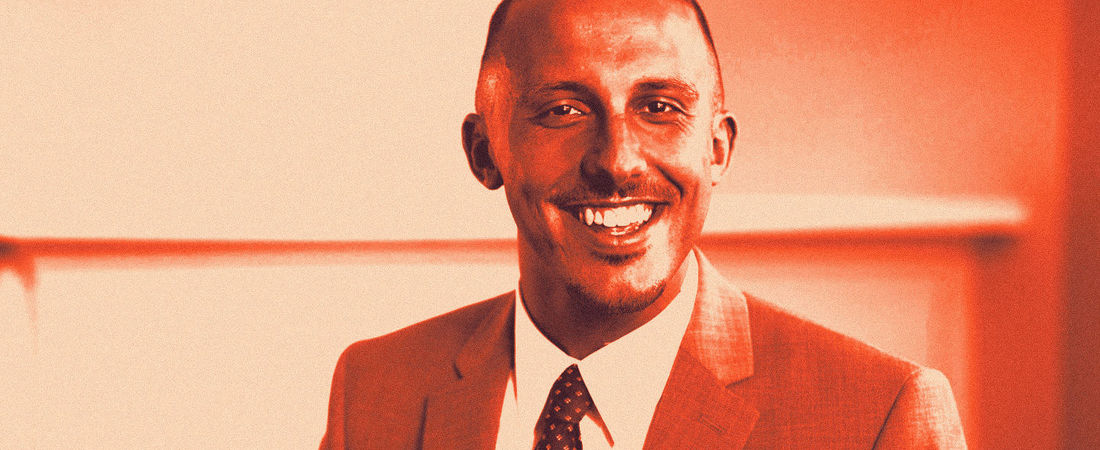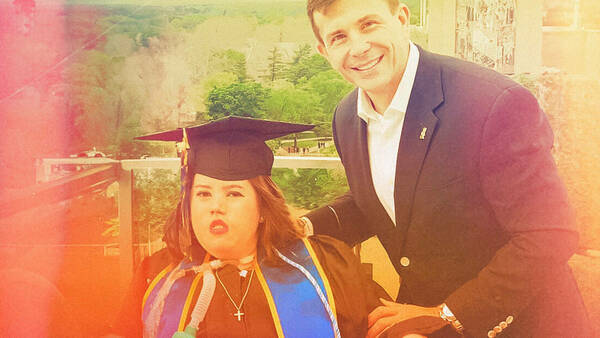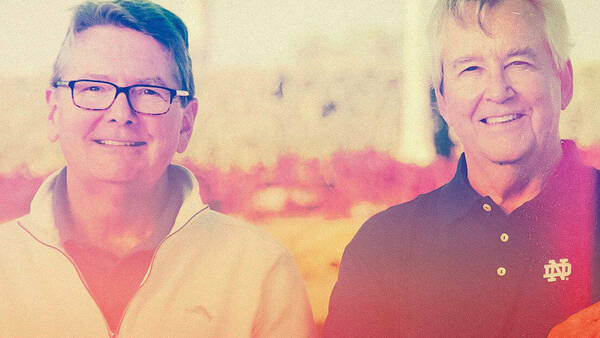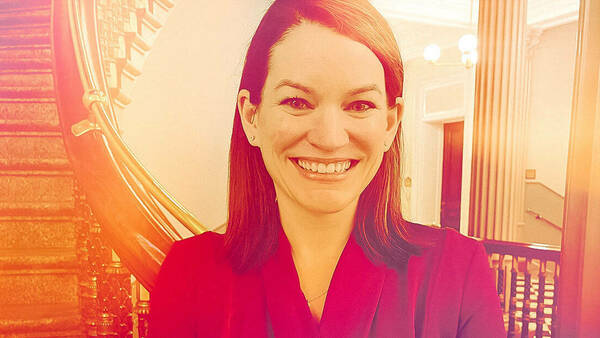Rob Callus ’15 spends a lot of time tinkering with Excel documents, organizing health care data from Kisii County, a rural area in western Kenya.
“There is this idea that no one wants to be punching numbers into an Excel document or writing reports all day, because it can be a bit tedious. But for me, the numbers are representing people,” Callus says. “They are mothers and children—people’s lives and their well-being.”
Callus works in those Excel documents as a program fellow with Curamericas Global, a Raleigh, North Carolina-based nonprofit that creates sustainable health care programs for underserved women and children worldwide. He earned the fellow role after starting out as an unpaid intern in January 2018, fresh off two years of service with the Jesuit Volunteer Corps in Tanzania.
JVC was the second time that Callus had worked in Africa. He participated in Notre Dame’s International Summer Service Learning Program (ISSLP), at an HIV clinic in Uganda run by the Sisters of Holy Cross, and says that was when he knew he wanted to work in global health and international development.
“I was looking for ways to engage my passion for medicine and health care, but not necessarily on the doctor track,” Callus says.
Curamericas’ work was a natural fit for these interests, and Callus’ two experiences in Africa made him an ideal choice for the organization’s first program fellow. Callus came on board to help with their project in Kenya: a new Community Birthing Center and increased rural health care access in Kisii County, where Curamericas found that the maternal mortality rate is 60 times worse than it is in the United States. Of every 100,000 births, 1,500 of those mothers die in childbirth. Curamericas is working with Kenya’s Ministry of Health on this project, and they have already set up health committees in 22 villages in Kisii County, which has a population of about 12,500.
Callus is currently immersed in the data analysis phase, organizing the information that Curamericas’ Kenyan employees and the health committees collected about the health of their own communities. Curamericas has already successfully created a similar program in Guatemala, but aims to tailor this one to the unique needs of Kisii County.
But it’s not all spreadsheets, graphs, and data. Callus went to Kenya for a month-long site visit in the fall, where he participated in meetings at the county’s health center building with clan elders from the villages, traditional community midwives, and community health volunteers.
“Being in the field is where my heart is, and where I feel most alive,” says Callus, who learned Swahili while he was working in Tanzania. “During the meetings, I got to flex my old Swahili muscles and translate for my colleague. It was a really special moment, being able to communicate with people in their own language and connect with them where they were.”
Connection and partnership is a priority for Curamericas, because the organization wants to create sustainable projects where the local community will eventually take full ownership.
“We want to encourage ownership of their health. This isn’t something you have to wait for the Ministry of Health to do—you can educate yourself on health topics,” Callus says. “Being able to share data about their health demographics was really empowering, because when they have that knowledge, they have the ability to identify how they feel about it. And then it might motivate them to do something.”
And it already has. While Callus was in Kenya, he helped train approximately 30 members of the community in holistic maternal and child health. With more knowledge about pregnancy, childbirth, and the postpartum period, the overall health of mothers and children will improve, despite the county’s limited access to hospitals and trained health care providers.
For Callus, this is where his employer’s mission dovetails with his own personal drive.
“One of my passions within science and health care is making it more accessible,” he says. “We write off a lot of things in health care as something that only doctors or professionals know, but we should all be able to understand our health and take it into our own hands.”



